As the world’s attention turns to the UN Climate Change Conference (COP27) in Sharm el-Sheikh, Egypt in November, emerging markets and developing economies are facing a host of challenges, from high food and energy prices to increasing poverty and conflict—and the ever-present impacts of climate change.
At the International Monetary Fund-World Bank Group Annual Meetings 2022 in October, climate change was also to the fore. The topics covered included tapping into the potential of carbon markets, financing the energy transition in developing economies, and achieving a just transition for all. Here are some highlights from conversations with leading climate business experts attending the meetings:
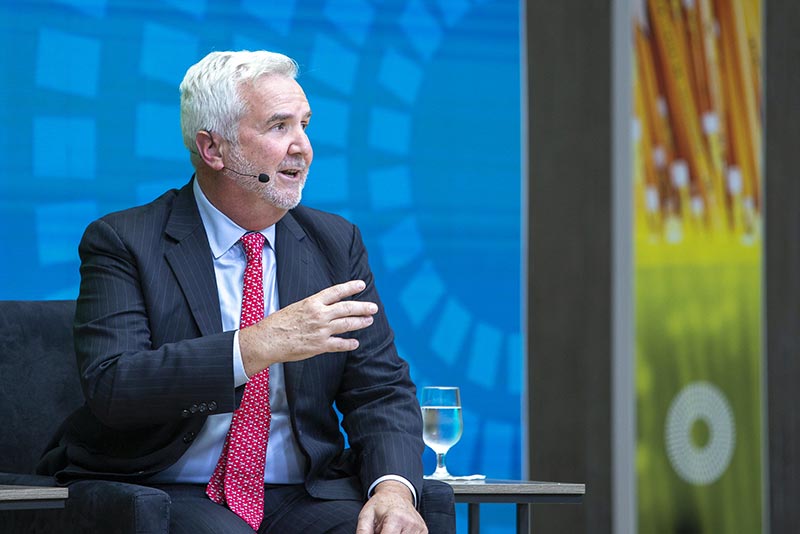 Photo by: Mikael Reventar / World Bank
Photo by: Mikael Reventar / World Bank
Dirk Forrister, President and CEO, International Emissions Trading Association (IETA)
“I represent a large segment of the business community that's committed to using carbon markets for scaling up action. Everybody needs help getting where they need to go, nobody can get there alone. You've got to have partners, whether it's technology partners, natural climate removal partners, cross border partners, but if we stay balkanized on it, we won't get there.
I think we're sitting right now at an inflection point where for a number of years we were waiting for the rules on Article Six [of the Paris Climate Agreement] to be agreed and we got that last year. There's enormous appetite from the business community, in part driven by investors that want to know how corporates are aligning with their own net zero aspirations, and also from governments that are pressuring their companies to do more. They're adopting laws that are going to cover and require carbon reductions. The promise of the tools of Article Six of allowing cooperation across countries is really essential to achieving the goals of Paris because if everybody tries to reach their goals in isolation, there are very few that will be able to get to net zero levels of protection.”
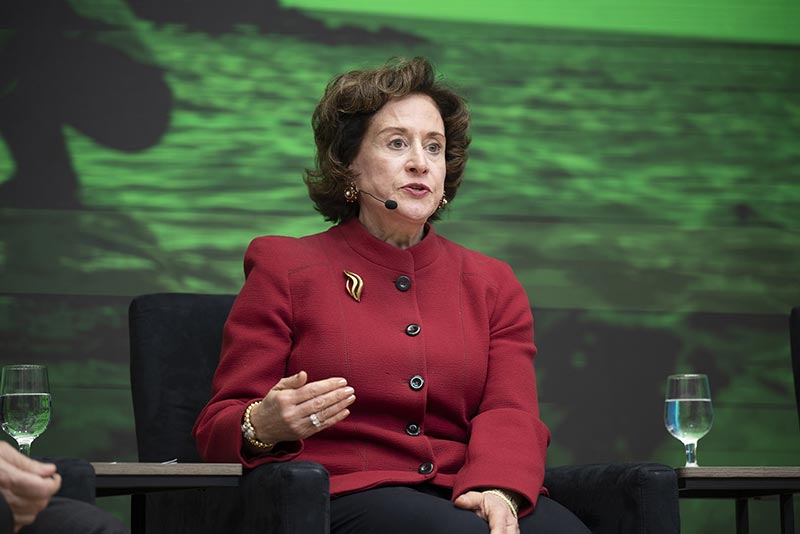 Photo by: Mikael Reventar / World Bank
Photo by: Mikael Reventar / World Bank
Annette Nazareth, Chair, Integrity Council for the Voluntary Carbon Market
“In the Integrity Council, one of our work streams, in addition to creating the core carbon principles, is this focus on [carbon] markets. We really think that we need to scale up the markets and while we're certainly not opposed to the continuation of bilateral contracts, our hope is that eventually we see this trade on electronic platforms and exchanges. I think that there are markets all over the world that are very excited to do that. On the voluntary side, I'm hoping it takes off like wildfire once we finalize our core carbon principles, because as I said, there's a huge appetite for these products from significant capital markets players like exchanges and brokers and others to be part of this.”
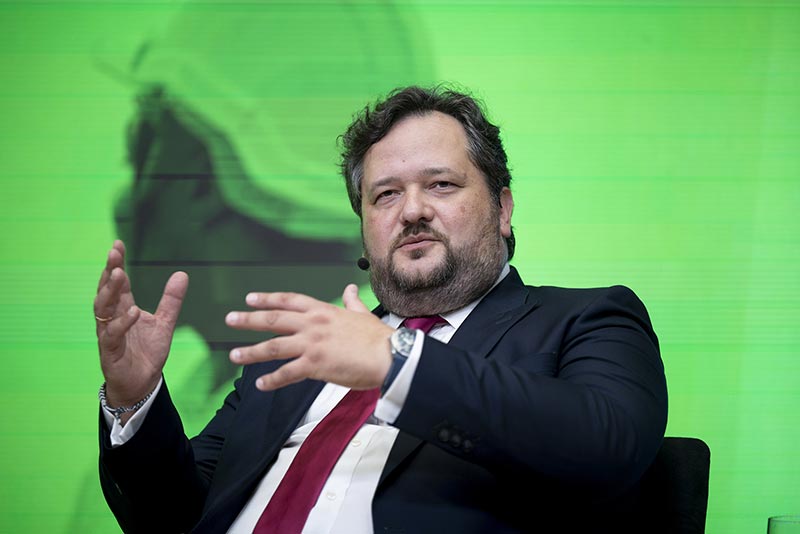 Photo by: Mikael Reventar / World Bank
Photo by: Mikael Reventar / World Bank
Slawomir Krupa, Head of Global Banking and Investor Solutions, and future CEO, Société Générale
“If you look at sustainable finance today, it's mostly a developed issuers market and so there's this gap which exists but the awareness is there, the funds are there, and clearly the investment needs are there. There's no way we can reach our goals for sustainable development and energy transition for the world if we don't do more in emerging countries. The good news for a lot of the emerging countries is that they do have a lot of renewable resources. Africa has roughly 40 percent of the solar resources but only 2 percent of the production capacity. The challenge is how do we make this work? How do we make sure that this available money finds its way, in the most efficient way, to the investment need? We are very keen to be part of the solution. We feel it's in our mission.”
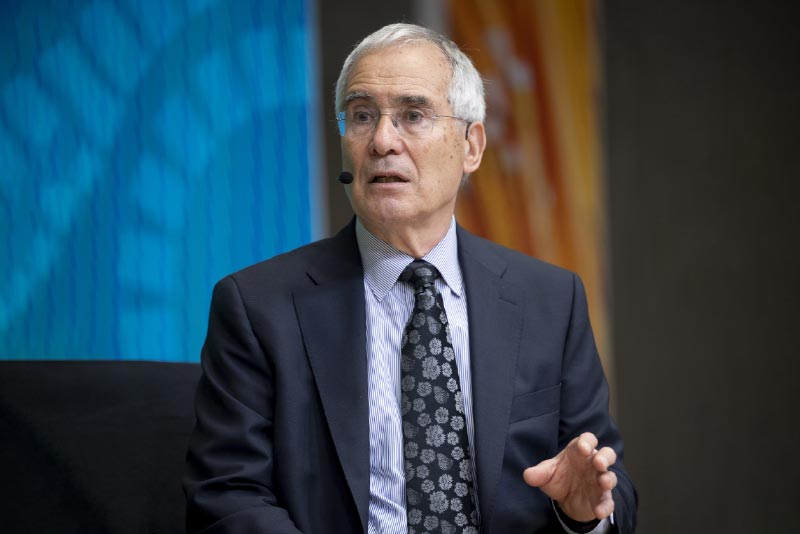 Photo by: Mikael Reventar / World Bank
Photo by: Mikael Reventar / World Bank
Nicholas Stern, IG Patel Professor of Economics and Government, London School of Economics
“We can see that we need to increase investment around the world to deliver on what we've committed to deliver. The important point is not the decimal points there, but the order of magnitude that we need to follow for emerging markets and developing economies, excluding China. That would mean something like an extra investment of about two trillion dollars a year as a flow by 2030. Perhaps one trillion could be financed internally. That means external flows of around one trillion dollars a year will be necessary. That's, of course, the challenge.
If we do that, then we have in our hands the growth story and the development story of the twenty-first century. It's not that we can just put these two things together and do all right, climate and development. It's stronger than that. The drive to net zero is driving the growth story of this century.”
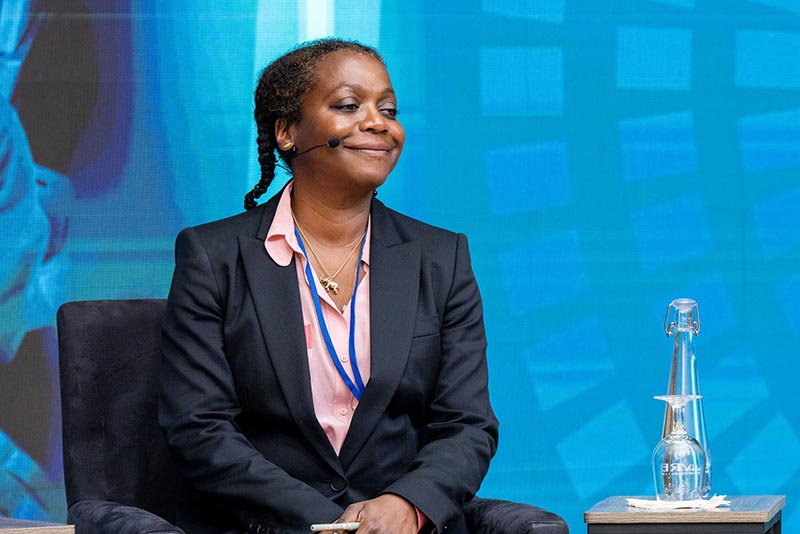 Photo by: Mikael Reventar / World Bank
Photo by: Mikael Reventar / World Bank
Karima Ola, Partner, LeapFrog Investments
“We can't talk about inclusive growth without talking about climate because the path to net zero is one which impacts people differently. In Africa, which currently contributes about 3 percent to the global carbon footprint, we're actually at the coalface when it comes to the impact. Extreme weather conditions are impacting agriculture, and as we all know, agriculture touches the lives of 70 percent of the population across the continent. As we look to the future, there has to be a just transition that enables development to happen at the same time as investments in clean technology.”
Published in November 2022
